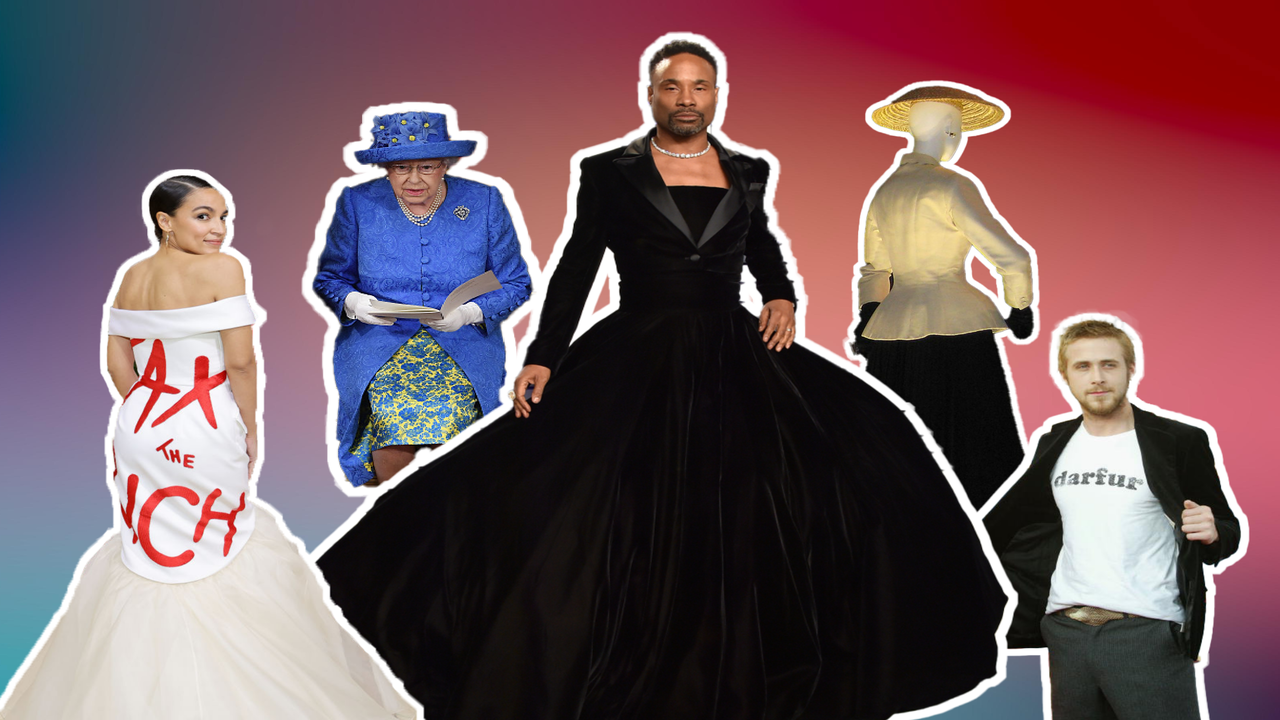Fashion has always played a role beyond the runway, transcending its surface-level purpose to become a powerful form of expression and communication. Over the years, political figures and events have intersected with the world of fashion, creating iconic moments that resonate far beyond the realm of style. Here, we explore the top 10 political fashion moments of all time, each encapsulating a unique blend of power, symbolism, and cultural impact.
- The Suffragette White (Early 20th Century): In the early 20th century, the suffragette movement adopted white as its symbolic color. Women fighting for the right to vote wore all-white ensembles to signify purity and equality. This fashion statement became a visual representation of the struggle for women’s rights.
- John F. Kennedy’s Presidential Style (1960s): President John F. Kennedy and First Lady Jacqueline Kennedy are renowned for their impeccable style. Kennedy’s tailored suits and Jacqueline’s elegant dresses set a new standard for presidential fashion, reflecting an era of sophistication and glamour.
- The Red Power Movement (1970s): In the 1970s, Native American activists embraced traditional clothing as a form of political protest. Wearing traditional garments, such as ribbon shirts and beaded accessories, they asserted their cultural identity and demanded respect for indigenous rights.
- Maggie Thatcher’s Handbags (1980s): Former British Prime Minister Margaret Thatcher used her handbags as a symbol of authority. The “Iron Lady” wielded her iconic handbag as both a fashion accessory and a metaphorical tool of governance, reinforcing her strong and decisive image.
- Aung San Suu Kyi’s Ethnic Dress (Late 20th Century): Nobel laureate Aung San Suu Kyi, while under house arrest in Myanmar, became an international symbol of resistance. Her choice to wear traditional Burmese dresses, or “longyis,” showcased her commitment to preserving cultural identity in the face of political adversity.
- Nelson Mandela’s Bold Shirts (Post-Apartheid Era): Nelson Mandela, South Africa’s first black president, often wore vibrant and patterned shirts known as “Madiba shirts.” These shirts became synonymous with Mandela’s legacy, symbolizing unity and a departure from the oppressive apartheid era.
- Michelle Obama’s Inauguration Gown (2009): Michelle Obama’s choice of a Jason Wu gown for Barack Obama’s first inauguration became an instant classic. The elegant white dress symbolized hope and change, while also catapulting the relatively unknown designer to international fame.
- The Pussyhat Project (2017 Women’s March): In response to Donald Trump’s presidency, the Women’s March in 2017 saw a sea of pink “pussyhats.” These handmade hats became a powerful symbol of solidarity, femininity, and resistance, turning a simple accessory into a political statement.
- Greta Thunberg’s Sustainable Style (Present): Climate activist Greta Thunberg has become a global icon not only for her environmental advocacy but also for her commitment to sustainable fashion. Thunberg’s preference for recycled and ethically produced clothing underscores her dedication to reducing environmental impact.
- Kamala Harris’s Purple Inauguration Outfit (2021): Vice President Kamala Harris made a strong statement with her choice of a purple ensemble for the inauguration. Purple, a color associated with unity, conveyed a message of bipartisanship and inclusivity, reflecting the historical significance of her vice presidency.
In the convergence of politics and fashion, these moments have left an indelible mark on history, showcasing the power of attire to convey messages, break barriers, and stand as symbols of social and political change.








